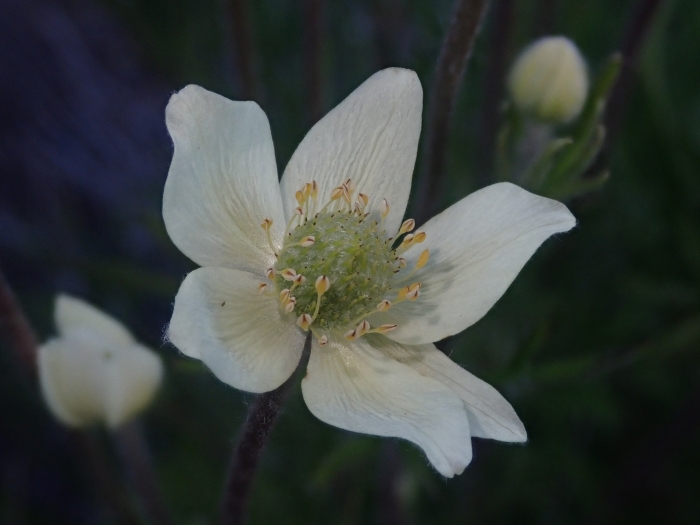Pacific Anemone
(Anemone multifida)
Pacific Anemone (Anemone multifida)
/
/

Nolan Exe
CC BY 4.0
Image By:
Nolan Exe
Recorded By:
Copyright:
CC BY 4.0
Copyright Notice:
Photo by: Nolan Exe | License Type: CC BY 4.0 | License URL: http://creativecommons.org/licenses/by/4.0/ | Rights Holder: Nolan Exe | Publisher: iNaturalist | Date Created: 2019-12-21T15:38:55-08:00 |













































Estimated Native Range
Summary
Anemone multifida, commonly known as Pacific Anemone, is a deciduous perennial herb that thrives in a variety of habitats including open woodlands, forest edges, alpine meadows, and rocky slopes in Canada, Alaska, the continental USA, and the Andes of South America. It typically grows from a branching caudex, reaching heights of 10 to 70 centimeters. The plant features showy flowers with four to eight petal-like sepals, usually white but can vary in color. These sepals surround a center packed with up to 80 stamens. After flowering, it produces distinctive woolly achenes that are long-haired, beaked, and a few millimeters in length.
Pacific Anemone is valued for its delicate, yet striking flowers that can add a touch of elegance to rock gardens, woodland plantings, and borders. It is relatively low maintenance, requiring medium amounts of water and thriving in well-drained soils. It prefers full sun but can tolerate part shade, especially in hotter climates. While generally disease-free, it can be susceptible to root rot if overwatered or planted in poorly drained soils. Gardeners should note that the plant may self-seed and spread, which can be desirable for naturalistic plantings but may require management in more formal garden settings.CC BY-SA 4.0
Pacific Anemone is valued for its delicate, yet striking flowers that can add a touch of elegance to rock gardens, woodland plantings, and borders. It is relatively low maintenance, requiring medium amounts of water and thriving in well-drained soils. It prefers full sun but can tolerate part shade, especially in hotter climates. While generally disease-free, it can be susceptible to root rot if overwatered or planted in poorly drained soils. Gardeners should note that the plant may self-seed and spread, which can be desirable for naturalistic plantings but may require management in more formal garden settings.CC BY-SA 4.0
Plant Description
- Plant Type: Herb
- Height: 0.3-0.9 feet
- Width: 0.1-0.3 feet
- Growth Rate: Rapid
- Flower Color: Pink, Purple, White, Yellow
- Flowering Season: Summer
- Leaf Retention: Deciduous
Growth Requirements
- Sun: Full Sun, Part Shade
- Water: Medium
- Drainage: Fast, Medium
Common Uses
Bee Garden, Bird Garden, Butterfly Garden, Deer Resistant, Groundcover, Low Maintenance, Rabbit Resistant, Showy Flowers
Natural Habitat
a variety of habitats including open woodlands, forest edges, alpine meadows, and rocky slopes in Canada, Alaska, the continental USA, and the Andes of South America
Other Names
Common Names: Cutleaf Anemone , Red Windflower , Bird’s-Foot Anemone , Cut-Leaved Anemone , Anémone Multifide , Flikanemon
Scientific Names: Anemone multifida , Anemone narcissiflora , Anemone magellanica , Anemone multifida f. multifida , Anemone lanigera var. hudsoniana , Anemone multifida var. magellanica , Anemone multifida var. uniflora
GBIF Accepted Name: Anemone multifida Poir.